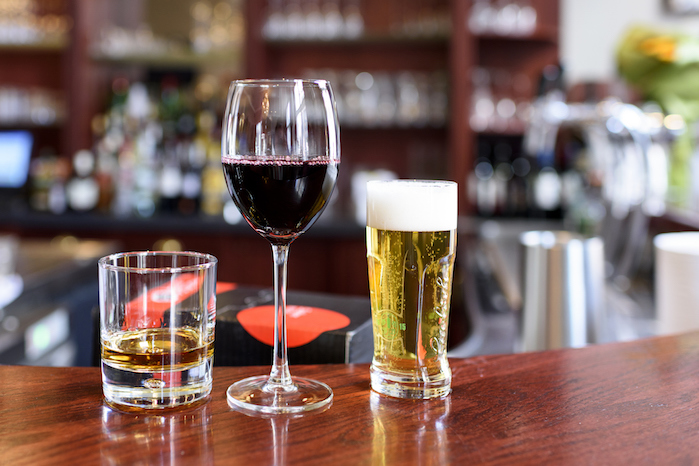The basic difference between beer and whisky is a concept that is so often misunderstood. Whether it is nutritional facts or the ingredients, it is obvious that both have their own facts that you should know if you prefer any of these two.

7 Major Things You Need To Know About Beer Versus Whiskey
Here I will discuss 7 major things that you should know when we are talking about beer versus whisky. So, let’s get started. You also can check Melvin Brewing for a better understanding.
What Is Beer?
This discussion should begin with the common question, “what is beer?” Beer is generally a lightly alcoholic beverage. It can be best defined as a fermented and carbonated beverage, which is one of the oldest alcohols ever known to humans.
Ingredient
The production of both beer and single malt whisky involved malted barley, but the main preparation and other supporting ingredients differentiate between them. Different types of whisky contain Malted barley, wheat, rye, corn, and many other ingredients.
The process of beer brewing includes boiling, lautering, mashing, and milling the grain and this subsequently results in grain mash. In brewing beer, maturation and fermentation are some of the final steps that are involved.
Taste
The taste of a whisky can vary from the wooden, oaky, sweet, citrusy, vanilla, smoky, or fruity finish. It all depends on the barrels that are usually used for aging the whisky along with the duration of its being matured.
When it comes to beer, bitterness is the legitimate characteristic of it. The addition of hops at the time of brewing describes its taste. On the basis of the brewing preparation, and brand the taste of beer also ranges from buttery to citrusy to sweet like whisky.
Alcohol Content
The alcohol percentage in beer generally does not exceed the range of 5%. The strong beer also must not exceed the range of 8% alcohol. But when it comes to whisky, you will be able to witness a large range of alcohol percentage variety.
A good whisky usually contains 40% alcohol, which sometimes goes up to 42.8%. There are also other stronger whisky options that have an alcohol percentage of 57%, or the highest of 67.5%.
Nutritional Value
When it comes to the nutritional value, you will get a lot of differences between both of them. Let’s look at the nutritional chart.
| Nutritional Facts | Beer | Whisky |
| Mineral Summary | 2% | 1% |
| Vitamin Summary | 3% | 0% |
| Protein | 3% | 0% |
| Carbohydrate | 4% | 0% |
| Fat | 0% | 0% |
| Low-Calorie Diet | Yes | No |
| Low glycemic index diet | No | Yes |
From the above chart, we can make a conclusion that beer has more nutritional benefits to offer us than whisky. Experts are also saying that beer has a bunch of serious health benefits.
Aging Period
In the beer versus whisky debate, there is another vital factor. Different brands have different aging periods of whisky. However, for single malt whisky along with Irish whisky, the aging period has to be at least 3 years legally.
Usually, beer does not follow this particular trajectory. Compared to whiskey, brewers prefer to age their brews in vastly different ways and for varying periods of time. Though it is irrelevant, you will like your beer in creative beer mugs and whisky in whisky glasses.
Comparison Table
Here is a brief comparison table that will help you understand alcoholic beverages, beer, and whiskey.
| Comparison Parameters | Beer | Whisky |
| Effectiveness | Beer has more antioxidants. | Whisky has comparatively fewer antioxidants. |
| Carbohydrate Content | Beer has more carbohydrates. | Whisky has less or simply no carbohydrates. |
| Ingredients | Water, Hops, malts, yeast. | Malted barley, wheat, rye, corn. |
| Calories | 43 calories per 100 grams. | 250 calories per 100 grams. |
| Best Partner | Margarita, soda, or juice. | Tonic, lemonade, orange juice. |
| Famous Brands | Heineken, Budweiser, Dunkel. | Johnnie Walker, Jack Daniel’s, Jim Beam. |
Conclusion
So, in the discussion of beer versus whisky, these are the 7 things that you need to know. Whether it is the ingredients or the manufacturing process, the aging period, or the nutritional facts, both of them have their own criteria. Though people with not so much liking towards these beverages will say both of them taste bitter, they also have totally different tastes.
Leave a Reply